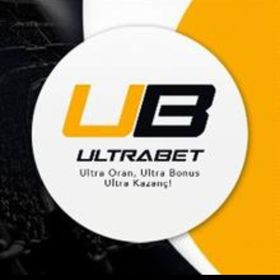What Are Exchange-traded Derivatives Etds?
OTC derivatives are privately negotiated, permitting customization but with higher counterparty risks and less market transparency. Derivatives contracts for currencies are widely listed on exchanges for buying and selling, permitting investors to commerce long or short on these forex pairs. The over-the-counter market offers many contracts, whereas the exchange-traded derivatives market focuses on a few well-liked foreign money pairs. Standardised agreements are provided for these extremely traded pairs, making certain their liquidity. A futures contract is a standardized agreement to buy or promote an underlying asset at a set price on a specified future date.
What Are Change Traded Derivatives?
Simply like there are inventory derivatives, there are also index associated derivatives. This implies that instead of purchasing for or promoting futures and choices in a given inventory, the buyers can buy or promote the complete change. Since the exchange is nothing however a portfolio of shares, these can also be thought-about to be a category of inventory related derivatives.
Nonetheless, forwards are typically much less liquid and less standardized in comparability with futures contracts, and they aren’t as broadly traded on exchanges. Clearing homes are pivotal to derivatives markets, serving as intermediaries between patrons and sellers to mitigate counterparty risk. For instance, the Options Clearing Company (OCC) clears all listed fairness choices in the United States. ETDs are standardized and traded on regulated exchanges, offering more liquidity, transparency, and lower threat.
Broad Classification Of Derivatives On The Basis Of Where They’re Traded
This standardization covers contract measurement, expiration dates, and tick measurement, all predetermined by the exchange. For instance, the Chicago Mercantile Change (CME) specifies that an S&P 500 futures contract represents $250 instances the index degree. This consistency simplifies buying and selling and boosts liquidity, as individuals can simply evaluate and compare contracts with out negotiating individual terms. Options are derivatives that grant the holder the proper, but not the duty etd full form in finance, to purchase or sell an underlying asset at a pre-specified date and amount. The choices market has seen remarkable growth because the first standardized contract was traded in 1973. Another defining characteristic of exchange-traded derivatives is their mark-to-market feature, whereby features and losses on every by-product contract are calculated on a daily basis.
In most countries there are multiple exchanges that supply trading opportunities in hundreds of commodities. ETDs are traded on regulated exchanges, which ensures a excessive degree of transparency in pricing and market activity. Since costs and trading volumes are publicly out there, merchants could make knowledgeable decisions. The use of clearinghouses additionally offers additional transparency by guaranteeing the settlement of trades. The monetary https://www.xcritical.in/ world presents an enormous array of investment choices, every catering to totally different risk tolerances and financial targets. Exchange-traded derivatives (ETDs) occupy a singular space within this landscape.
In Contrast To over-the-counter derivatives, these contracts promote transparency by providing market-based pricing information. Moreover, it will increase liquidity and reduces flexibility and possibilities of negotiation. Exchange-Traded Derivatives (ETDs) are financial contracts whose value is based on the worth or value of an underlying asset. They are traded on regulated exchanges like the Chicago Mercantile Trade (CME), the Intercontinental Exchange (ICE), or Eurex, and so they are available standardized forms. The most typical kinds of ETDs are futures and choices, though other derivatives similar to swaps can additionally be traded on exchanges. When it comes to change traded derivatives, stocks are the most common underlying belongings.
Financial Securities: Sorts, Buying And Selling, Dangers & Portfolio Benefits
Thomas J Catalano is a CFP and Registered Funding Adviser with the state of South Carolina, the place he launched his own financial advisory agency in 2018. Thomas’ expertise provides him experience in a wide selection of areas including investments, retirement, insurance, and financial planning. As Quickly As verified, you can fund your account utilizing crypto deposits or fiat transfers.
- If the value of oil will increase by the contract’s expiration, the investor can promote the contract for a profit.
- Accounting for futures underneath GAAP and IFRS requires recognizing features and losses in the income assertion, influencing monetary metrics like net income.
- Traders can use derivatives for different reasons, corresponding to decreasing danger, making a revenue, or taking advantage of worth differences.
Conversely, they might receive less compensation in a wetter-than-average yr. The existence of such contracts on WeatherComex would allow farmers to manage their threat better and plan for the monetary influence of varying climate situations. Think About a fictional change known as “WeatherComex” that offers Rainfall Futures contracts. These contracts enable agricultural businesses to hedge in opposition to the danger of insufficient rainfall affecting their crop yields. A company growing wheat in a drought-prone area may purchase Rainfall Futures that pay out if the rainfall of their area falls under a sure threshold through the rising season. If your account steadiness falls beneath the required upkeep margin, the platform may problem a margin call.
These contracts allow two parties to agree to buy or promote an underlying asset at a predetermined worth on a specific future date. Futures contracts are standardized and traded on exchanges such because the Chicago Mercantile Exchange (CME) and the Intercontinental Exchange (ICE). Exchange-traded derivatives are financial contracts listed and traded on a regulated trade. They have benefits over OTC derivatives, corresponding to standardisation, liquidity, clearing, and regulation. Exchange-traded derivatives can be used for various purposes, similar to hedging, hypothesis, or arbitrage. Common examples of exchange-traded derivatives are futures, options, and swaps.
The benefits of ETDs include transparency, liquidity, and decrease counterparty threat, rendering them a useful instrument for both institutional and retail traders. Exchange-traded derivatives supply more liquidity, transparency, and decrease counterparty danger than over-the-counter (OTC) derivatives at a price of contract customization. The exchange-traded derivatives world contains futures, choices, and choices on futures contracts. A derivative contract is a monetary instrument that derives its worth from the underlying asset, similar to a inventory, commodity, or foreign money. A change within the price of the underlying asset results in a change within the Stablecoin value of the by-product contract.
For example, an agricultural producer can use futures contracts to lock within the price of crops earlier than harvest, defending in opposition to the chance of falling costs. Equally, companies that take care of foreign currency can use forex futures to hedge towards exchange price fluctuations. Derivatives contracts pertaining to currencies are additionally commonly listed on many exchanges for trading. The over the counter market offers a variety of contracts that may negotiated as and when needed. Contrary to this, the change traded derivatives market solely provides a few popular foreign money pairs which may be listed. Since the contracts are standardized and liquidity is a priority, the index presents standardized contracts on for a few pairs of currencies that are highly traded.

